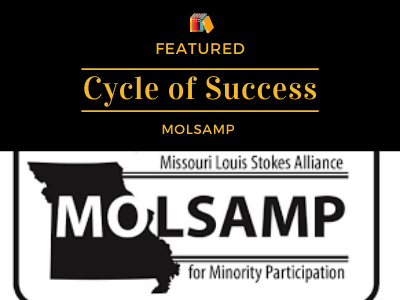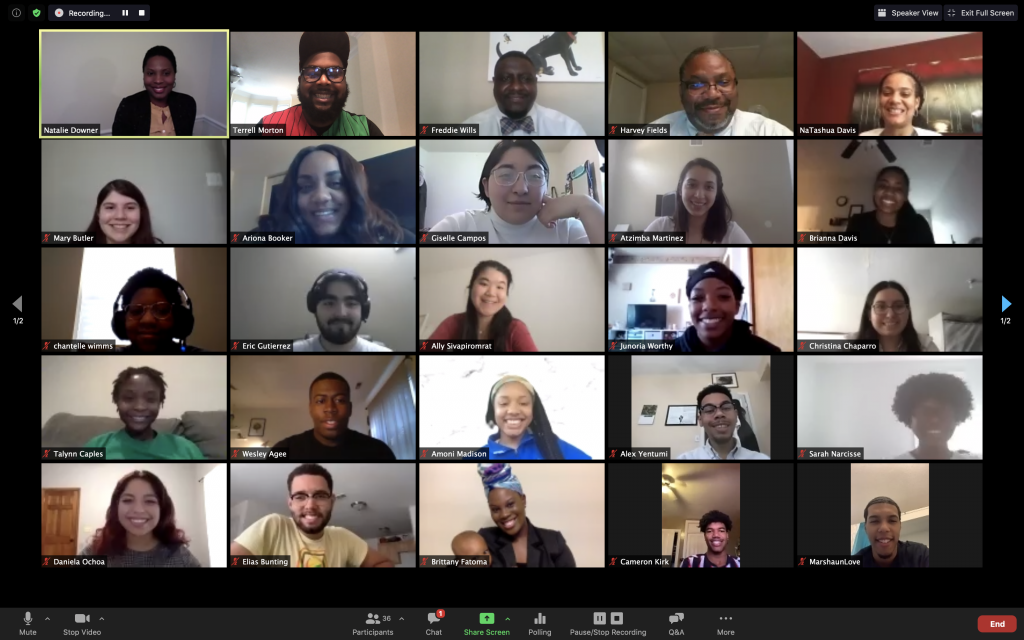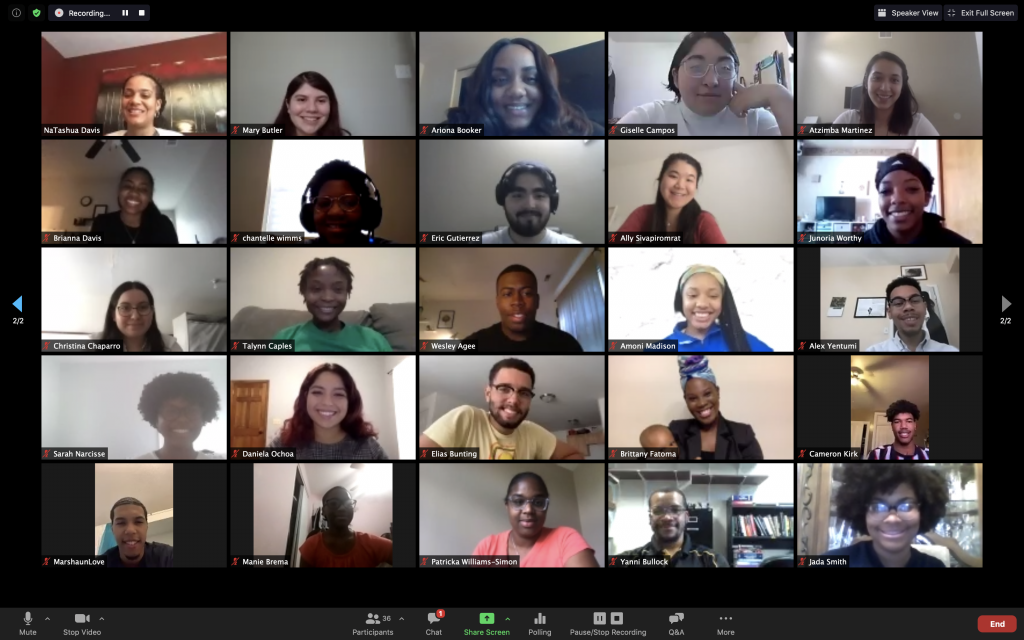The Missouri Louis Stokes Alliance for Minority Participation program (MoLSAMP) brings underrepresented undergraduate students, from across the state of Missouri, interested in pursuing science and science related careers to the University of Missouri campus for a 9 week summer research program. Like most things in 2020, the program changed course due to the COVID-19 pandemic. Not wanting to cancel and still provide a robust research experience for their students, the program transitioned to a virtual format, a format our Mizzou librarians didn’t shy away from.
The MU branch of MoLSAMP, a National Sciences Foundation grant funded program, is house in the Access and Leadership Development Unit within the Division of Inclusion, Diversity, and Equity. The program gives students, from nine partner institutions* around the state of Missouri, the opportunity to work with mentors and pursue research that most interests them. According to Dr. Terrell Morton, faculty fellow of the Mizzou branch of MoLSAMP, the program’s main purpose is to provide resources and opportunities to support students who have been historically and contemporarily kept out of STEM spaces given the various gatekeeping structures surrounding these disciplines.
After the decision was made not to cancel MoLSAMP, Dr. Terrell Morton was charged with creating a virtual research experience curriculum that was meaningful and engaging. The curriculum allowed for collaboration between University of Missouri and Washington University in St. Louis, providing a multi-layered, interdisciplinary virtual summer research program. This was the first ever MOLSAMP joint REU experience and comprised several coordinated educational and research activities anchored by the overarching focus on “COVID-19: It’s Impacts and Implications in Minoritized Communities. The main component of that curriculum was a research project focused on examining the intersection of COVID-19, health outcomes, and resented racial communities. With the students expected to produce a research paper on their findings, they needed to learn how to locate, synthesize and cite knowledge in the scientific literature. This is where Rachel Brekhus, humanities and social sciences librarian, and Noel Kopriva, head of the engineering library and agriculture librarian, came in.
With MoLSAMP’s previous focus on physical lab research, collaboration with librarians wasn’t previously explored. When the idea was floated to get librarians involved, Dr. Natalie Downer, the Mizzou MoLSAMP coordinator and McNair program associate director, reached out to Rachel Brekhus knowing about her work with the McNair Scholars, hoping she could provide the same support with MoLSAMP students and could recommend a second librarian to round out the team.
Working with librarians from Washington University, Rachel and Noel collaborated on weekly workshops from locating scientific literature to the publishing and peer review process. Dr. Natalie Downer says the students relied heavily on the librarians, learning how to navigate several important databases and search methods (keyword searching, fielded searching, citation searching), using Zotero for organizing and citing research sources, and visiting during virtual office hours for additional assistance. “We also spent time going over the publication and peer review processes, which are so important to understand when looking at the work on COVID-19, where the science is moving very quickly, and citations sometimes outpace peer review,” says Rachel Brekhus.
At the end of experience, MoLSAMP produced their research findings or research paper with topics that they developed and worked on over the course of the program. Noel Kopriva’s favorite part of the program was joining the students on their research journey and seeing their final products. “I liked seeing the students progress from having a nebulous idea of what they wanted to research and see how their knowledge of the relationship between COVID and race evolved over the summer. We also got to sit in on a series of practice presentations and give them feedback as they prepared for their final presentations. It was so wonderful to see how they had taken the germ of an idea and turned it into a fully developed and sophisticated presentation,” says Noel.
Special thanks to the MoLSAMP partners, Dr. Freddy Wills, Dr. NaTashua Davis, Dr. Harvey Fields for making MoLSAMP possible in 2020.
*University of Missouri – Columbia, Harris-Stowe State University, Lincoln University, Missouri State University, St. Louis Community College, Truman State University, University of Central Missouri, University of Missouri – St. Louis, and Washington University in St. Louis


